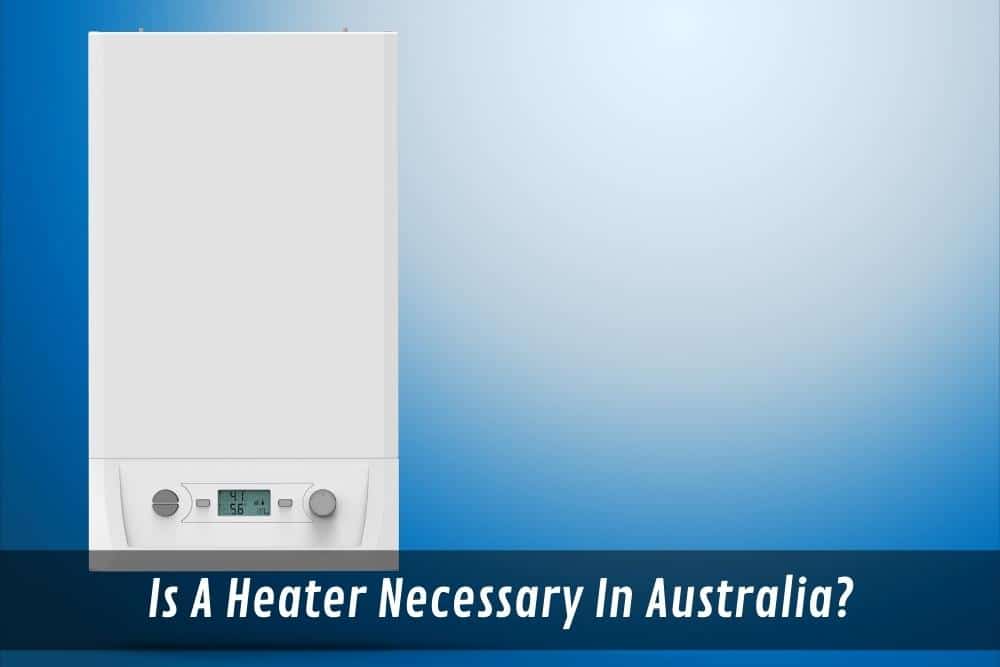Are you looking for the best water heater in Australia? Heating is a necessity when it comes to surviving in the chilly winter months. However, there are many households and offices across Australia that don’t own a heater, making it a topic of great debate. With the rising cost of electricity, many Australians are opting to go without heating, but is it a good idea?
In this article, we’re going to explore whether a heater is necessary to survive the winter months in Australia. We’ll look into the pros and cons and weigh up the potential risks of not having a heating system in place. Whether you’re considering installing a heater or thinking about going without one, we’ll provide you with valuable insights so you can make an informed decision.
Why is it important to have a heater?
Hot water is an essential part of our daily lives, and having a reliable heater is crucial for ensuring that we can access it whenever we need it. Whether you need a hot shower, are washing dishes, or doing laundry, having a consistent supply of hot water is essential for maintaining a comfortable and hygienic lifestyle.
Central heating systems are popular in colder regions of Australia, and gas storage systems are a popular choice for water heating. Heat pump hot water systems are becoming increasingly popular due to their energy efficiency. While solar hot water systems offer a sustainable and environmentally friendly option.
Running out of hot water can be frustrating, and choosing the right hot water system is crucial to avoid this problem. Gas hot water systems offer a continuous flow of hot water, while electric hot water systems and electric storage systems are popular options. Whether you choose gas or electric, choosing the right system for your home will depend on a range of factors, including your energy source and your heating requirements.
When choosing a hot water system, it’s important to consider factors such as energy efficiency ratings, heat loss, and the types of hot water available. A continuous flow system may be more energy efficient. While a gas storage system may offer greater flexibility in terms of usage.
In summary, having a heater is essential for water heating in Australia. There is a range of options available to suit different needs and preferences. Whether you opt for a gas or electric system, a continuous flow system or a storage system, choosing the best hot water heater for your home will ensure that you always have access to hot water when you need it.
What are the pros and cons of having a heater?
When considering the use of a heater, it is important to weigh both the advantages and disadvantages. Below, we have outlined some of the primary benefits and drawbacks.
Pros:
- Comfort
One of the main benefits of having a heater is that it provides warmth and comfort in colder weather. This is particularly important for people who live in regions with cold winters.
- Convenience
Having a heater means that you don’t have to rely on other sources of heat. Such as a fireplace or space heater, which can be less efficient and more difficult to maintain.
- Health benefits
Keeping your home at a comfortable temperature can have health benefits. Such as reducing the risk of respiratory infections and improving sleep quality.
- Increased home value
A well-maintained heating system can increase the value of your home, particularly if you are planning to sell in the future.
Cons:
- Energy costs
Heating your home can be expensive, particularly if you live in a cold climate and need to use your heater frequently. This can result in high energy bills, particularly if you have an inefficient heating system.
- Maintenance
Heaters require regular maintenance to ensure that they are functioning properly, which can be time-consuming and costly.
- Environmental impact
Heaters can have a significant environmental impact, particularly if they are powered by fossil fuels. This can contribute to climate change and other environmental problems.
- Safety risks
Heaters can pose safety risks if they are not properly maintained or used correctly. For example, space heaters can be a fire hazard if they are placed too close to flammable materials.
Despite some drawbacks, having a heater can provide significant benefits, such as comfort, convenience, and health. However, it’s crucial to select the best water heater in Australia that is both energy-efficient and safe. Regular maintenance of the heater is also essential to reduce the risks and costs related to heating your home. By choosing an efficient and reliable heating system and ensuring its proper upkeep, you can enjoy the warmth and comfort of your home without worrying about the associated costs and risks.
What is the cost of running a heater in Australia?
The cost of running a heater in Australia can vary depending on several factors, including the type of heater, the size of the space being heated, and the duration of usage. Additionally, the cost of water heater installation will also impact the overall cost of running a heater.
It’s important to keep in mind that running a heater continuously for long periods can result in higher energy bills. To minimise energy costs, it’s recommended only to use the heater when needed and to ensure the space being heated is well-insulated.
What are the different types of heaters available in Australia?
There are several different types of heaters available in Australia, each with its own advantages and disadvantages. Let’s take a closer look at the most common types of heaters, including the best water heaters in Australia.
- Gas heaters
Gas heaters are a popular choice in Australia because they are efficient and affordable. They come in two main types: gas space heaters and ducted gas heaters. Gas hot water systems are also common and are often more energy-efficient than electric systems.
- Electric heaters
Electric heaters are another common option, particularly for small spaces or as a backup heating source. They can be portable or wall-mounted, and some models come with a built-in timer or thermostat.
- Heat pumps
Heat pumps are an energy-efficient alternative to traditional electric heaters. They work by extracting heat from the air outside and using it to heat your home. They can be expensive to install but can save money on energy bills in the long run.
- Solar heaters
Solar hot water systems are an eco-friendly and cost-effective option for water heating. They use the sun’s energy to heat water and can provide hot water even on cloudy days.
- Continuous flow hot water systems
Continuous flow hot water systems are a popular choice for water heating because they only heat water as it’s needed. This means that they are highly efficient and can provide a constant supply of hot water.
Overall, having a heater installed in your home is crucial, particularly during colder months when temperatures can drop significantly. Apart from providing warmth and comfort, it also creates a more livable and pleasant space. To make the most of it, it’s necessary to choose the best water heater in Australia that is energy-efficient, safe, and suitable for your home’s size and layout, considering the cost of water heater installation. With various types of heaters available, such as gas, electric, and wood heaters, each with its own advantages and disadvantages selecting the right one can be challenging. However, irrespective of the heater type you choose, it’s critical to maintain it regularly and use it safely to avoid accidents and ensure its efficient operation for many years.
Contact Apex Plumbing Services Sydney today if you’re in need of a reliable and experienced plumbing service in Sydney. Our team of licenced and qualified plumbers can assist you with all your plumbing needs, including heating installation and maintenance. Reach out to schedule a consultation and find out how we can help you with your heating needs.


